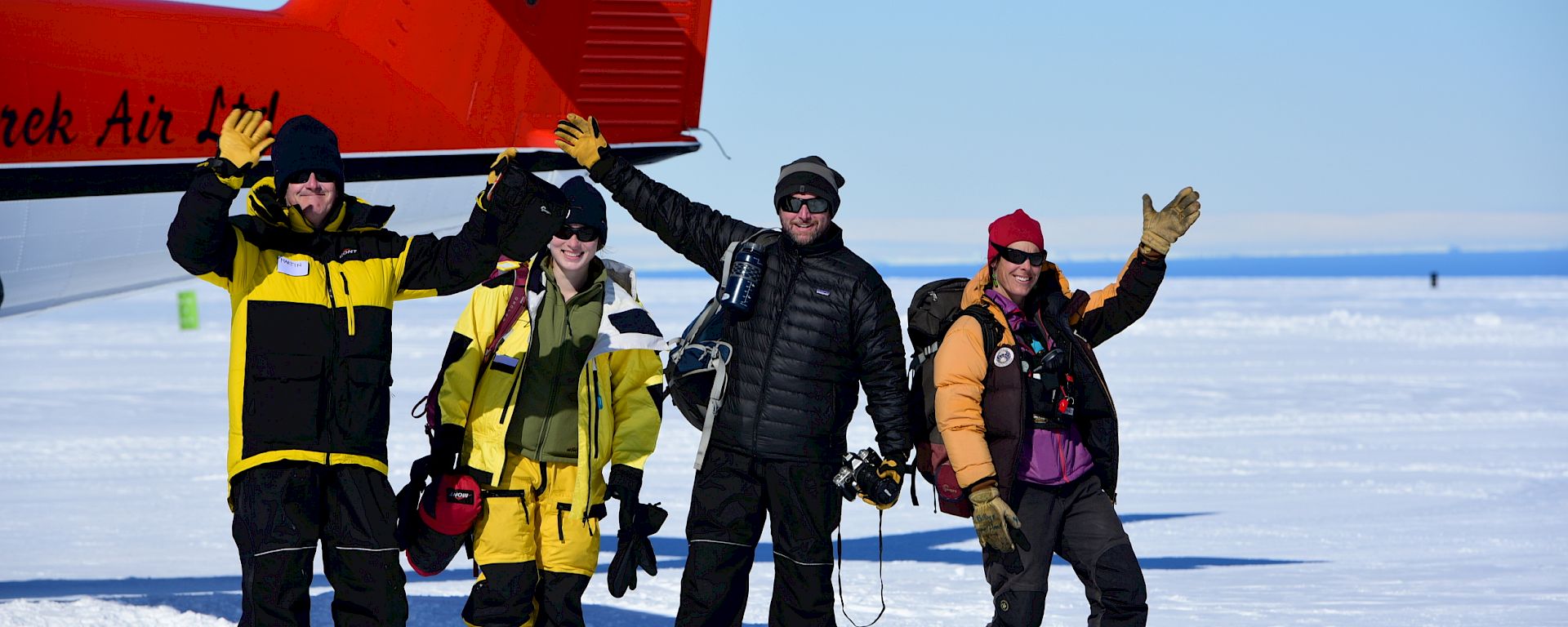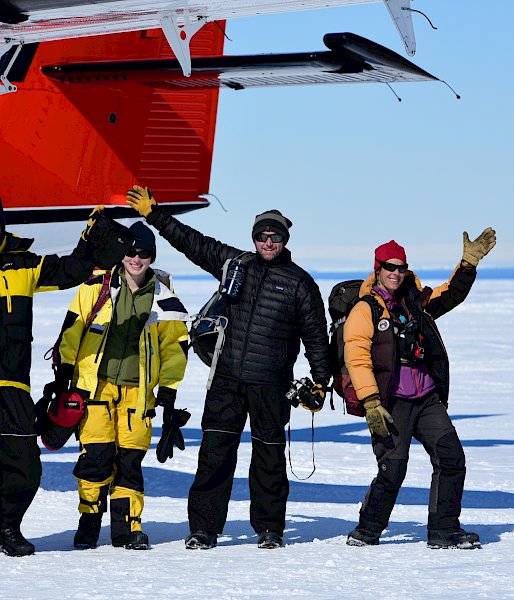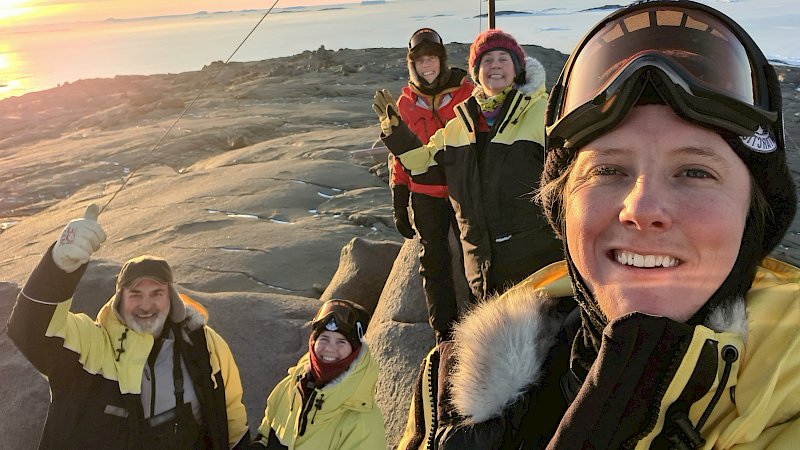Work qualities
The personal qualities that relate to an expeditioner being able to effectively complete their work.
Team Work
Refers to an expeditioner’s ability to achieve goals in the workplace in collaboration with others.
Expeditioners are able to actively contribute to their group in order to complete tasks, meet goals or manage projects. In actively listening to co-workers and respecting a diverse range of ideas, a team player understands that their team’s success is their own success, and they share responsibility when their team experiences difficulties along the way.
Proactive
Refers to an expeditioner’s ability to anticipate, recognise and respond to tasks and risks as they arise.
Expeditioners anticipate and are able to respond to situations rather than simply reacting. They demonstrate initiative in the completion of tasks which may be distinct from their work duties, including support to science and social or community activities.
Focus on Excellence
Refers to an expeditioner’s personal focus for excellence, as well as their contribution toward the pursuit of excellence as an AAP participant.
Expeditioners are self-motivated to seek excellence in all they do. Excellence should be aspired to in all aspects of expeditioner life including being a good community member. They take pride in the completion of work to a high standard but maintain a drive for continued improvement, both as an individual and a community member. They recognise the value which a collective sense of excellence provides and are an active contributor to it by giving and receiving constructive feedback.
Community qualities
The personal qualities that relate to an expeditioner being committed to the organisation, its mission and its work.
Emotional Intelligence
Refers to an expeditioner’s willingness and capacity to understand their emotions and the emotions of their colleagues and have the ability to motivate themselves and the team regardless of whether they are in a formal leadership role or not.
Expeditioners are aware of their emotions and how they may impact on others. They are able to manage their own emotions, as well as recognise and respond appropriately to the emotions of others. Expeditioners are able to build strong, lasting relationships, and be an active, empathetic community member ensuring they adapt their personal style to deal with different workplace situations.
Community Mindedness
Refers to an expeditioner’s willingness and desire to be an active member of a close and diverse community.
Expeditioners are an active member of a close and diverse community. They are self-sufficient but also comfortable living and working alongside one another while acknowledging and celebrating differences. Expeditioners value respect, harmony, teamwork, equality and inclusion. Expeditioners also respond to disharmony in a manner which is respectful of the individuals involved and builds the community.
Inclusivity
Refers to an expeditioner’s understanding of diversity and how people’s different backgrounds may impact on how they experience a situation. Expeditioners recognise the value that diversity of thought and experience brings to problem solving and team performance. They actively seek to create inclusion for all.
Expeditioners have a strong sense of respectful curiosity, have a genuine openness to engage with others and consider their differing viewpoints.
Organisation qualities
The personal qualities that relate to an expeditioner being committed to the organisation, its mission and its work.
Flexibility
Refers to an expeditioner’s ability to recognise the complexities of the problems, situations, and interactions they face and respond in a considered and community-focussed way, under a variety of changing circumstances.
Expeditioners are flexible in their thought processes, procedures, and interpretations and manage work responsibilities alongside community interests and personal time. They recognise the complexity of situations and understand how this impacts their responses. They also recognise that the unique nature of the AAP environment may require them to adapt their work procedures and practices.
Organisational Alignment
Refers to an expeditioner’s awareness of, and alignment with, Australia’s interests in the Antarctic.
Expeditioners value their work and understand how it contributes to the work the AAP is doing to support Australia’s interests in the Antarctic. They recognise the value of Antarctic science and Australia’s continued presence in Antarctica. Expeditioners identify with the values of the organisation and with a shared responsibility and actively contribute toward its evolution through feedback and engagement.
Safety Commitment
Refers to an expeditioner’s commitment toward an atmosphere which promotes the mental and physical wellbeing of themselves and their colleagues.
Expeditioners demonstrate a proactive commitment to safety, adhere to AAD’s safety systems and make an appropriate effort to understand their obligations and act accordingly.




